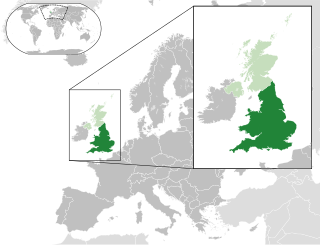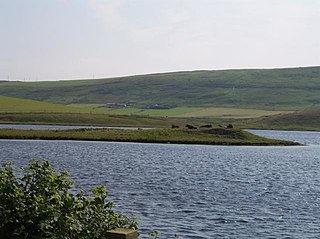Related Research Articles

A guild is an association of artisans and merchants who oversee the practice of their craft/trade in a particular area. The earliest types of guild formed as organizations of tradesmen belonging to a professional association. They sometimes depended on grants of letters patent from a monarch or other ruler to enforce the flow of trade to their self-employed members, and to retain ownership of tools and the supply of materials, but were mostly regulated by the city government. A lasting legacy of traditional guilds are the guildhalls constructed and used as guild meeting-places. Guild members found guilty of cheating the public would be fined or banned from the guild.

Peterborough is a cathedral city in Cambridgeshire, east of England. It is the largest part of the City of Peterborough unitary authority district. It was part of Northamptonshire until 1974, when county boundary change meant the city became part of Cambridgeshire instead. The city is 76 mi (122 km) north of London, on the River Nene which flows into the North Sea 30 mi (48 km) to the north-east. In 2020 the built-up area subdivision had an estimated population of 179,349. In 2021 the Unitary Authority area had a population of 215,671.

A county is a geographic region of a country used for administrative or other purposes in certain modern nations. The term is derived from the Old French comté denoting a jurisdiction under the sovereignty of a count (earl) or a viscount. Literal equivalents in other languages, derived from the equivalent of "count", are now seldom used officially, including comté, contea, contado, comtat, condado, Grafschaft, graafschap, and zhupa in Slavic languages; terms equivalent to commune/community are now often instead used.

England and Wales is one of the three legal jurisdictions of the United Kingdom. It covers the constituent countries England and Wales and was formed by the Laws in Wales Acts 1535 and 1542. The substantive law of the jurisdiction is English law.

Politics of England forms the major part of the wider politics of the United Kingdom, with England being more populous than all the other countries of the United Kingdom put together. As England is also by far the largest in terms of area and GDP, its relationship to the UK is somewhat different from that of Scotland, Wales or Northern Ireland. The English capital London is also the capital of the UK, and English is the dominant language of the UK. Dicey and Morris (p26) list the separate states in the British Islands. "England, Scotland, Northern Ireland, the Isle of Man, Jersey, Guernsey, Alderney, and Sark.... is a separate country in the sense of the conflict of laws, though not one of them is a State known to public international law." But this may be varied by statute.

In England, a civil parish is a type of administrative parish used for local government. It is a territorial designation which is the lowest tier of local government below districts and counties, or their combined form, the unitary authority. Civil parishes can trace their origin to the ancient system of ecclesiastical parishes, which historically played a role in both secular and religious administration. Civil and religious parishes were formally differentiated in the 19th century and are now entirely separate. Civil parishes in their modern form came into being through the Local Government Act 1894, which established elected parish councils to take on the secular functions of the parish vestry.

A sister city or a twin town relationship is a form of legal or social agreement between two geographically and politically distinct localities for the purpose of promoting cultural and commercial ties.

Historic preservation (US), built heritage preservation or built heritage conservation (UK), is an endeavor that seeks to preserve, conserve and protect buildings, objects, landscapes or other artifacts of historical significance. It is a philosophical concept that became popular in the twentieth century, which maintains that cities as products of centuries’ development should be obligated to protect their patrimonial legacy. The term refers specifically to the preservation of the built environment, and not to preservation of, for example, primeval forests or wilderness.
Local government in the United States refers to governmental jurisdictions below the level of the state. Most states and territories have at least two tiers of local government: counties and municipalities. Louisiana uses the term parish and Alaska uses the term borough for what the U.S. Census Bureau terms county equivalents in those states. Civil townships or towns are used as subdivisions of a county in 20 states, mostly in the Northeast and Midwest.
The Association of Chief Police Officers of England, Wales and Northern Ireland (ACPO) was a not-for-profit private limited company that for many years led the development of policing practices in England, Wales, and Northern Ireland. Established in 1948, ACPO provided a forum for chief police officers to share ideas and coordinate their strategic operational responses, and advised government in matters such as terrorist attacks and civil emergencies. ACPO coordinated national police operations, major investigations, cross-border policing, and joint law enforcement. ACPO designated Senior Investigative Officers for major investigations and appointed officers to head ACPO units specialising in various areas of policing and crime reduction.
Bartın is a city in northern Turkey and the central district of the province of Bartın.

Beypazarı is a town and district of Ankara Province in the Central Anatolia region of Turkey, approximately 100 km west of the city of Ankara. According to the 2000 census, the population of the district is 46,493, of which 35,775 live in the town of Beypazarı. The district covers an area of 1,814 km2 (700 sq mi), and the average elevation in the center is 675 m (2,215 ft). The district contains three other small towns and 64 villages. It used to be an important city in Asia Minor in ancient times.

The English Bridge Union or EBU is a player-funded organisation that promotes and organises the card game of duplicate bridge in England. It is based at offices in Aylesbury. The EBU is a member of the European Bridge League and thus affiliated with the World Bridge Federation, which promulgates the laws of the game.

The Council of European Municipalities and Regions (CEMR) is the largest organisation of local and regional governments in Europe. Its members are 60 national associations of towns, municipalities and regions from 41 countries that are part of the Council of Europe. Together these associations represent about 130,000 local and regional authorities.
The Revived Cornish Stannary Parliament, is a pressure group which claimed to be a revival of the historic Cornish Stannary Parliament last held in 1753. It was established in 1974 and campaigned, up until 2008, against the government of the United Kingdom's position on the constitutional status of Cornwall.

The United Kingdom of Great Britain and Northern Ireland (UK), since 1922, comprises four constituent countries: England, Scotland, and Wales, as well as Northern Ireland. The UK Prime Minister's website has used the phrase "countries within a country" to describe the United Kingdom. Some statistical summaries, such as those for the twelve NUTS 1 regions of the United Kingdom, refer to Northern Ireland, Scotland, and Wales as "regions". With regard to Northern Ireland, Scotland and Wales particularly, the descriptive name one uses "can be controversial, with the choice often revealing one's political preferences".

Law Ting Holm is a small promontory at the north end of the freshwater Loch of Tingwall, Mainland Shetland, Scotland. It was once an islet entirely surrounded by water, joined to the shore by a stone causeway 1.7 metres (6 ft) wide and 42.7 metres (140 ft) long. In the 1850s the levels of the loch were lowered and the holm evolved to its present form. The Loch of Tingwall is west of the town of Lerwick and has one additional island - Holm of Setter.

In the United Kingdom, devolution is the Parliament of the United Kingdom's statutory granting of a greater level of self-government to the Scottish Parliament, the Senedd, the Northern Ireland Assembly and the London Assembly and to their associated executive bodies the Scottish Government, the Welsh Government, the Northern Ireland Executive and in England, the Greater London Authority and combined authorities.
The European Heritage Alliance 3.3, an informal European sectoral platform composed of 30 European or international networks and organisations active in the wider field of cultural heritage, was launched in June 2011 on the occasion of the European Heritage Congress 2011 organised by Europa Nostra in Amsterdam.
References
- ↑ "Europe a common heritage", Document 9025 of the Council of Europe Parliamentary Assembly, 2001 Archived 6 June 2011 at the Wayback Machine
- ↑ "PowerPoint presentation by Brian Smith on the Ptuj City website, presented in Ptuj, September 2008". Archived from the original on 18 July 2011. Retrieved 13 March 2009.